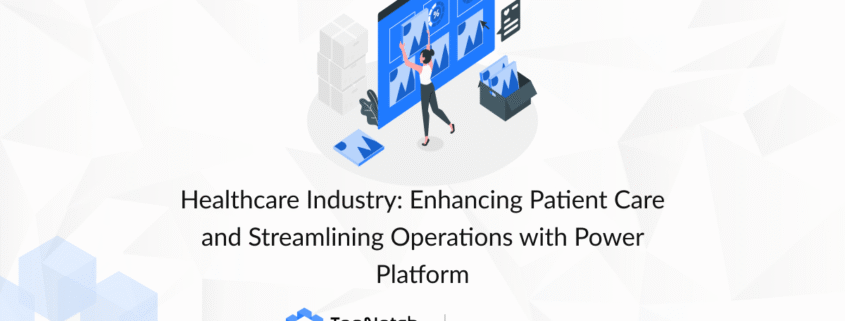Healthcare Industry: Enhancing Patient Care and Streamlining Operations with Power Platform
Introduction: The healthcare industry faces significant challenges, from managing patient data to ensuring compliance with strict regulations such as HIPAA. The rise of digital health solutions and increasing patient demands for personalized care means healthcare providers must modernize their processes. Microsoft Power Platform can help healthcare organizations automate administrative tasks, streamline workflows, improve patient care, and ensure compliance with industry standards.
Challenges in Healthcare:
- Data Privacy and Security: Healthcare providers must protect patient information from data breaches and ensure compliance with regulations such as HIPAA and GDPR.
- Patient Expectations: Patients demand quicker access to care, better communication with providers, and more transparency in billing and treatment.
- Operational Efficiency: Healthcare organizations often rely on outdated, manual processes for scheduling, billing, and patient management, which can lead to inefficiencies and delays.
- Regulatory Compliance: Ensuring compliance with medical regulations, including billing codes, insurance claims, and treatment standards, is a constant challenge.
How Power Platform Helps in Healthcare:
- Power Apps: Power Apps enables healthcare organizations to develop custom applications for managing patient records, appointments, and treatment plans. For instance, a custom app can track patient progress, allow doctors to update treatment plans in real-time, and offer patients a portal to view their medical history.
- Power Automate: Power Automate can simplify administrative processes, such as appointment scheduling, insurance claims, and referral tracking. Automation can reduce errors in data entry and ensure that necessary steps are followed in patient care.
- Power BI: Power BI can consolidate data from electronic health records (EHRs), wearables, and other sources to track key performance indicators (KPIs) like patient wait times, treatment effectiveness, and hospital readmission rates. Dashboards can help healthcare providers make data-driven decisions to improve patient outcomes.
- Power Virtual Agents: Virtual agents can handle common patient inquiries, such as appointment scheduling, prescription refills, and insurance coverage questions. This reduces the burden on administrative staff and improves patient satisfaction.
Case Study: A hospital system used Power Platform to improve patient scheduling and manage their billing process. By automating patient reminders, insurance claim submissions, and billing notifications through Power Automate, they reduced administrative overhead by 40%, and patient satisfaction increased by 30%.
